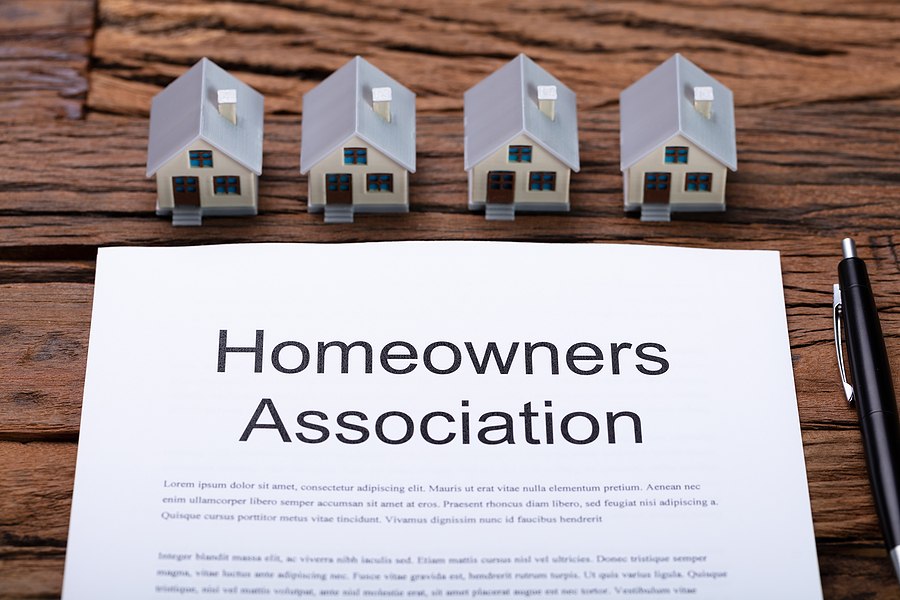Welcoming Heatherton of Edina to the Sharper Family

Eden Prairie, Minn – (September 12, 2022) – Effective September 1st, Sharper Management is pleased to welcome Heatherton of Edina to the growing stable of clients managed in the Edina area. Originally constructed in the late 70s and located in the heart of Edina just of France Avenue, the Heatherton is a beautiful community made up of 105 units, a pool, community room, library and exercise room. “We are excited to have the Heatherton community under our umbrella,” said Dan Cunningham, Owner of Sharper Management. “We have bid on this account a few times over the years. Some of our staff even have a long history with the building. It is great to finally have the opportunity to work with the Board to help maintain and enhance this special property.” Founded in 2010, Sharper Management is a locally-owned, mid-sized property management company offering a full suite of premiere services to homeowner and commercial associations of all sizes. Sharper Management currently provides services to the Minneapolis-St. Paul seven-county area.
New Economic Realities for HOAs

The economic realities today affect homeowner associations in their own unique ways. The first COVID summer of 2020 brought uncertainties and government restrictions that impacted projects and daily life in HOAs. Amenities were closed, pools had protocols, and meetings happened virtually. The summer of 2021 brought material shortages. So, what has 2022 brought to our world of community associations? Gas prices have hit an all-time high and are projected to reach nearly $5 per gallon this summer. Lawn and snow vendors, in particular, are hurting. And check your contracts! Many of them have a clause about gas exceeding a certain dollar amount before a surcharge may apply. Fertilizer prices have also taken a massive price hike this spring. According to the US Department of Agriculture, some of the core ingredient such as nitrogen and ammonia are up 200%. Another thing significantly affecting lawn and snow providers is what we we’ve been hearing about on the news for months – labor shortages. Last winter, the Minnesota Department of Labor estimated private snow removal companies were down 20% in labor force. These issues have started affecting lawn/snow contracts this spring. Some companies cut clients to reduce portfolios and limit non-profitable accounts. Some had significant rate increases at renewal time. Many vendors didn’t even bid new clients to control their capacity. Expect significant increases in your contracts in these areas this fall and next spring. Production of building materials is also showing a COVID-related lingering affect. The US Department of Labor reported last year that 90% of roofing companies indicated they could not work at full capacity because there was a material shortage on shingles—due to the fact that factories were shut down because of COVID in that first summer of 2020. Cause and affect can take time. Material increases and labor shortages are not unique to any particular industry. Asphalt, concrete, roofing, trades, etc. are all fighting the same battles. And what else has changed? Demand for projects is actually up. Early on in the pandemic we were all scared of the economic uncertainties. What we learned is that people are home more, and they want to take better care of the homes they are in. This applies to associations as a whole as well. Improvement projects to associations never slowed—in fact, they increased. All in all, project patience, service quality expectations, material options, and cost realities need to be put into a new economic perspective by HOA Boards.
Spring Walk-Through Time!

For a while, it was hard to believe spring would ever come, but May is here and we’ve hit the ground running. It is, perhaps, the busiest time in property management. Your manager is busy making lists of things to be addressed following the long, cold winter season. The inevitable list of crushed downspouts. There are plenty of pet and plow sod damage letters to be written. Summer project planning starts ramping up. And the spring/summer meeting schedules start filling up. One thing each Association should consider is a spring walk-through of the buildings and grounds. Each Board is different in how they handle it. Here are a few common approaches. Together Some Boards like to walk around together with the manager. More eyes can be a good thing. Additionally, it is nice to review things together to gain consensus on projects and how to prioritize tasks. The difficultly with this approach, however, can be finding a respectful understanding with your Community Manager. Scheduling can be difficult—remember that managers are already working evenings for Board meetings and emergencies. Managers have a checklist and a methodology they follow, and the distractions of homeowners coming out to say “Hi” and the unavoidable “say, while I have you here…,” can make for an extremely long and cumbersome inspection. Board Board members only. Sometimes it is helpful without the manager, who sees the property on a frequent basis and is always looking for maintenance items. As managers, we can be guilty of developing tunnel vision. If a Board is going to take this approach, it can be helpful to divvy things up. For large and expansive communities, print a site map and assign areas. Or, if you’re doing it together, assign components. Someone looks at landscaping, another Board member inspects the concrete, etc. Manager Sometimes the Board doesn’t want to be involved and will leave it up to the manager. There is something to be said for this approach. A manager is not biased, and he/she is trained for this activity and has tools and templates to make it an effective and efficient inspection. Expert Another approach to truly getting a fresh look and a professional perspective is to bring in an expert. If you’re looking at a specific issue, take roofs for example, many roofing companies may offer to do a free or low-cost inspection. Documentation may be the most important component of a thorough spring inspection. If you’re doing it as a Board, utilize a spreadsheet with columns of important items to check (windows, landscaping, etc). Be sure to take pictures. They can be incredibly valuable for rule violations, warranty claims, contractor negligence, repair bidding, and more. If the site visit is left to the manager or an expert, you can be assured they have their methodology for documentation. Whatever route you take, spring inspections are incredibly important to document winter issues, and to prepare, prioritize, and position the community for a great summer season. Happy spring walking!
Evolving Lender Requirements Affect HOAs

In reaction to the tragic collapse of the Champlain Towers South condo building in Surfside, FL last summer, there have been significant changes to mortgage lender requirements with loans backed/purchased by Fannie Mae and Freddie Mac. A large portion of mortgage loans (estimated at nearly 50%) are typically purchased by Fannie or Freddie, so mortgage lenders will be diligent to ensure during their underwriting process that these requirements are satisfied. These requirements are purportedly “temporary,” but requirements for Fannie backed loans went into effective January 1st, while Freddie backed loans go into effect February 29th. The concerns brought on by the events in Florida are three-pronged: significant deferred maintenance, perceived or realized “unsafe conditions,” and the Association’s overall financial health. Who Does This Affect? Any Association legally recognized as a “condominium” or a “cooperative” with more than five units. The word “condominium” is important, as there are Associations that may be perceived as a “townhome;” however, they might be legally defined as a “condominium.” The word does not just apply to what one might envision as a high- or low-rise building. Check your Declarations and Articles of Incorporation for this definition and classification of your Association. What Are the New Requirements? Maintenance – The primary crux of this is an Association cannot have “deferred maintenance.” This is generally a difficult thing to define and may be difficult to prove the subjective adequacy of “maintenance.” One way to do so is to have an active Preventative Maintenance Plan in accordance with the Minnesota Common Interest Ownership Act (“MCIOA” or 515b) requirements passed in 2019. Reserve Study & Fund – Another way to illustrate proactive maintenance is to have a formal “reserve study” done, and then following the recommendations laid out in that study. Fannie and Freddie both require that 10% of operating budget goes to Reserves. (note: Fannie waives this requirement if a reserve study is in place and up to date). Details on Loans & Assessments – Fannie and Freddie will both require significant detail to be provided on Special Assessments or Association loans. Six months’ worth of Meeting Minutes may be requested, and specific details may be required in the resale disclosure and review process. Addendum to Resale Questioners – Fannie and Freddie both released the joint “Condominium Project Questionnaire” and a new Addendum to gather information required under the new lender requirements. As part of the resale disclosure process, this new Addendum asks specific questions of the association such as: When was the building last inspected by a licensed architect, engineer, or building inspector? Did the last inspection have any findings related to safety, soundness, structural integrity, etc.? Is there a Reserve Study and has it been updated in the past three years? Current or planned Special Assessments? What Should the Association Do Now? It would be wise for effected Associations to seek a legal opinion to review the above-mentioned areas of requirements for compliance. An “opinion letter” on file would be a helpful tool. In addition, a pre-filled-out Addendum would be helpful to have at the ready for when a resale disclosure package is requested. As the busy summer selling season gets into swing, there will be detailed requests coming in from buyers and sellers as it relates to these new requirements. It is best to get on top of it as soon as possible so the Association is ready. Finally, unless your Governing Documents state otherwise (which is extremely rare), it is important to remember that these are not requirements of the Association. These are new requirements of Fannie Mae and Freddie Mac. Associations generally have no obligation to confirm that there is no deferred maintenance, no unsafe conditions, no planned special assessments, or to verify that it is fiscally sound. However, the risk of liability should be weighed against buyers and sellers who could make claims that the Association was a deterrent to a resale transaction because financing fell through on account of Freddie/Fannie requirements. Nevertheless, it would be a wise decision for any legally defined “Condominium Association” to consult with their attorney for a legal review.
Sharper Management Welcomes New Assistant Community Manager

Eden Prairie, MN, (September 20, 2018) – Sharper Management is pleased to welcome Grant Peterson to its team as the newest Assistant Community Manager. Peterson brings a strong background in real estate through his experience as an agent selling in the condo, co-op, townhome and other multi-family property markets. Additionally, he serves on the Board of Directors in the condominium association where he resides. “Being a homeowner in an association, I get to learn what works well and what is missing from the management side of things. I get to incorporate that into my management style,” said Peterson. “I am excited for the opportunity to be a ‘professional problem solver’ and work with Boards to help increase property values, benefiting all homeowners.” “Grant brings a unique perspective and solid skills set to our team of managers,” said owner and chief operating officer, Matt Froehlich. “We are excited to see how he can make an impact on the team of Community Managers he works with day-in and day-out – and to one day grow into a strong portfolio manager himself. We are excited to have him aboard.” Peterson is assigned to support a group of Community Managers, all of whom are overseen by Candy Lee and Josh Reams as the directors of community management. Founded in 2010, Sharper Management is a locally-owned, mid-sized property management company offering a full suite of premiere services to homeowner’s associations of all sizes. Sharper Management currently provides services to the Minneapolis-St. Paul seven-county area. For more information on Sharper Management services and employment opportunities, call 952-224-4777 or email to info@sharpermanagement.com.
Sharper Management Appoints Tina Weiland as Collections Manager.
Eden Prairie, MN, (May 5, 2014) – Sharper Management is proud to announce that experienced collections expert, Tina Weiland, has joined the firm as their new Collections Manager. In this executive role, Ms. Weiland is responsible for leading Sharper’s collections department, implementing their proven collections platform, and assisting Homeowner’s Association clients in managing their accounts. Delinquencies and unpaid accounts are one of the biggest issues that can negatively affect the financial viability of a Homeowner’s Association. Handling these matters, though, requires expertise in numerous areas which many HOAs do not have access to. Sharper Management has developed a results-oriented and proven collections system which is part of every comprehensive property management plan. “Tina has an in-depth knowledge of collections combined with the skills and experience to step right in, assess each client’s need, and enforce the policies required to ensure each association’s financial health,” says Matt Froehlich, Owner and Head of Operations. “Having Tina lead collections is a huge asset for our company and our clients.” Ms. Weiland comes to Sharper Management with nearly ten years of accounting, billing, and collections experience. In previous positions, she helped manage multiple accounts including working directly with board members in assessments and collections, Conciliation Court proceedings, financial management, and more. Her broad range of experience, familiarity with the region, and strong Minnesota roots makes her a great addition to the Sharper team of property management experts. “I’ve worked with hundreds of HOAs in the Twin Cities area and learned a lot along the way,” says Ms. Weiland. “Collections is such a critical part of a successful HOA and I’m excited to bring my experience to helping our clients build strong communities.” For more information on Sharper Management services and employment opportunities, call 952-224-4777 or send an email to info@sharpermanagement.com.About Sharper Management, LLC. Founded in 2010, Sharper Management is a locally-owned, mid-sized property management company offering a full-suite of premiere services to rental owners and homeowner’s associations of all sizes. Sharper Management currently provides services to the Minneapolis-St. Paul seven-county area and to Rochester, Minnesota
